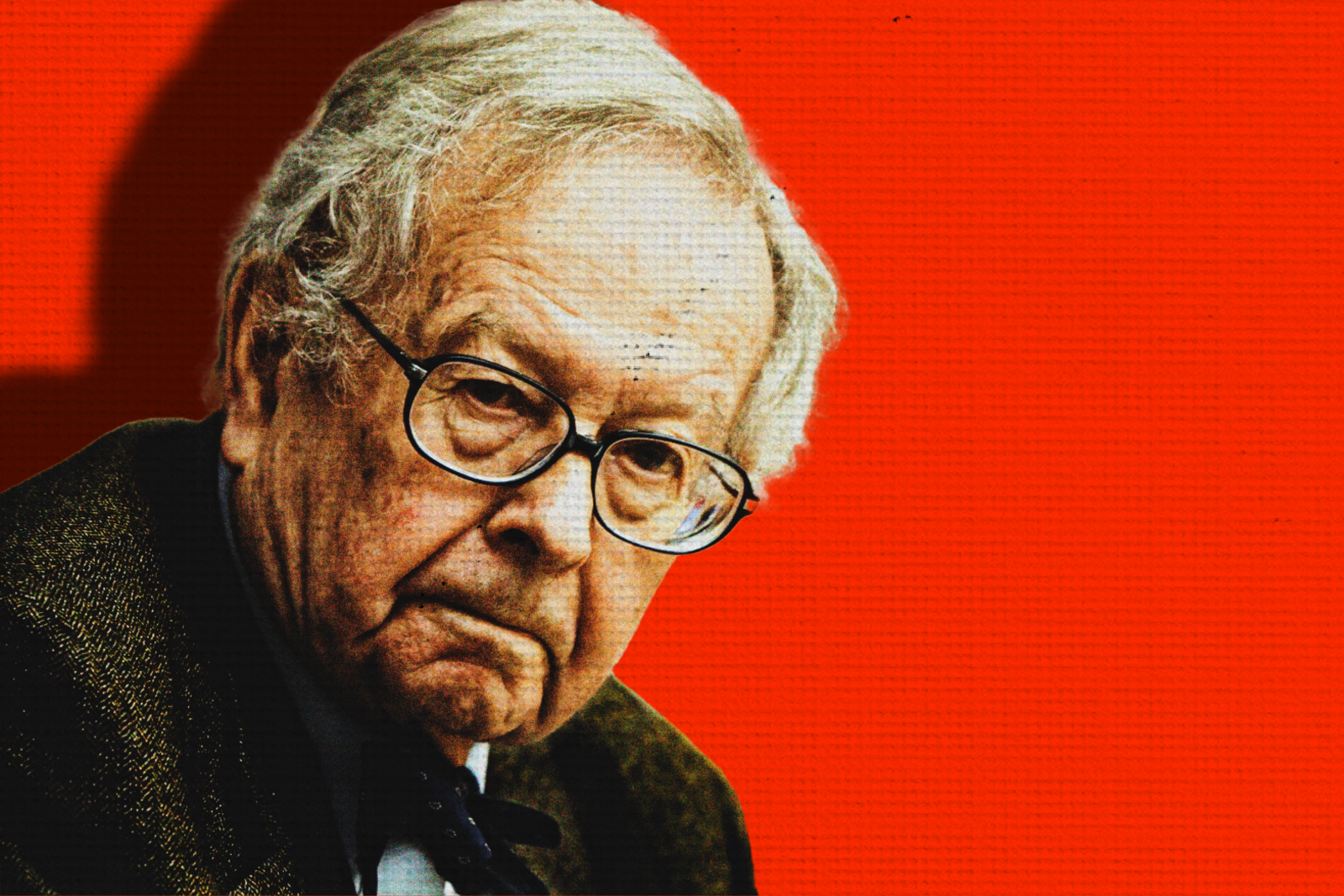
Kenneth Waltz’s Final Warning on Iran
Kenneth Waltz, a proponent of defensive realism, felt compelled to argue in an essay in Foreign Affairs that the regional imbalance against Iran is the ultimate reason for strife in the Middle East near the end of his life. Waltz proposed that the only road to stability in the anarchic world order would be to allow Iran to develop nuclear weapons and create parity with the only Middle Eastern nuclear power: Israel.
This was several months before he died in 2013, and more than a decade later after Waltz’s last essay “Why Iran Should Get the Bomb,” this issue has become tremendously more important given Israel’s war against Hamas after the October 7th terrorist attacks. Iran’s financial and political support for a multitude of proxies is a key reason for the current bloodshed in Gaza and casualties in Israel.
Iran’s role in the October 7th attacks was not direct, but Tehran has provided abundant financial resources to Hamas and Palestinian Islamic Jihad. Global affairs experts realized quickly that the potential for Iran, its proxies, and allies to be drawn into a regional coalition against Israel was dangerously high. The likelihood of regional conflagration has altered the geopolitical landscape and severely impeded global supply chain routes. Israel, a major player in the global economy, was now causing a decrease in investor confidence and created a chain reaction in the global economy. Houthi rebels, who support the Palestinian cause and are a proxy of Iran, fired on ships in the Gulf of Aden and the Red Sea.
Supply chain routes were now unable to continue the natural flow of goods, resources, and supplies. The Iranian fingerprints on the Houthi attacks are beyond dispute, and Tehran is seeking leverage against Israel and retribution for devastating sanctions enforced against it by the international community. Iran has further bolstered its offense by proxy warfare against Israel to Israel’s north. Hezbollah in Lebanon, the Iranian Revolutionary Guard Corp in Syria, and pro-Iranian paramilitary groups in Iraq have been additional facets of the Iranian campaign against Israel via proxy. The multitude of Iranian proxies is evidence that the Iranian regime is desperately seeking gains from the detrimental effects it has had on Israel’s military, economy, and citizenry from supporting the October 7th attack and its perpetrators, Hamas.
Iran is a vestige of past empires that ruled the world and challenged powerful empires for regional supremacy. The idea of “the Persian Empire” is not lost on Iran’s current leadership regardless of its theocratic mode of government. Iranian history books are filled with the glorious retellings of Cyrus the Great who established the Achaemenid Empire, which was the largest empire by area in its time, and Darius the Great whose conquests established the Persian Empire as the first superpower in recorded history. The Iranian view of Israel, a country established in 1948, is naturally dismal. The majority of Muslims in the Middle East view Israel as a Zionist occupation by an illegal seizure of land from indigenous Palestinians, as well as neighboring territories. For example, the Iranian regime has never wavered in supporting Syria’s claim that the Golan Heights were illegally seized by Israel or that the Palestinians had their land stolen by the Zionists.
In the nuclear age, global and regional supremacy in the security arena depends on nuclear weapons development. The Iranian view is that Israel, an illegitimate state illegally occupying Muslim territory, is wrongfully projecting its power by military and nuclear means while Iran is confined to middle power status in the region. This clashes with Iran’s historical sense of “the Persian Empire,” and it seeks parity in the nuclear security field.
In Kenneth Waltz’s last Foreign Affairs essay, he insisted that his defensive realism model of international relations dictates that stopping Iran from achieving nuclear status would only exacerbate tensions and inflame more animosity. According to Waltz, economic sanctions are not effective, and history has shown that states that acquire nuclear power status are met not with hostility, but with cooperation. According to Waltz’s lifelong academic research, the anarchic system is balanced by states seeking to develop their capabilities to maintain order and stability for their own respective positions. Waltz’s main tenet is that balance in power dynamics on the world stage leads to cooperation.
Waltz asserts that “Israel’s nuclear monopoly” in the region is creating an imbalance in regional power dynamics, and this is the root cause of the Iran-Israel rivalry. Waltz points out that Israel has taken great measures to ensure its nuclear monopoly in the region, specifically Iraq in 1981 and Syria in 2007. In Dick Cheney’s memoirs, he remembers both episodes and says that he supported the Israeli decisions in both cases. During the Persian Gulf War in 1991, then Secretary of Defense Dick Cheney called Minister of Defense Moshe Arens to thank him for the Israeli military action that destroyed the Iraqi nuclear program in 1981. Cheney bluntly states that if Israel had not taken that military action against Iraq, the United States would have had to confront a nuclear-armed Saddam Hussein who may have launched nuclear strikes against the United States and Israel. According to Cheney, a nuclear holocaust was averted in 1991.
During the second term of President George W. Bush, the Israeli government provided intelligence that indicated Kim Jong-Il of North Korea was providing the Syrians with nuclear weapons development material at the Al Kibar site in eastern Syria. Mossad and CIA intelligence concurred that the Assad regime was secretly developing a nuclear weapons program with the help of North Korean scientists. Dick Cheney had advocated that the United States destroy the facility rapidly and efficiently, but the American national security apparatus experienced a transformation during George W. Bush’s second term.
With the resignation of Secretary of Defense Donald Rumsfeld and the rise in influence of Secretary of State Condoleezza Rice and National Security Advisor Stephen Hadley, Dick Cheney was marginalized in policy debates and the opposing view won out. The American response to the Israelis was that Jerusalem pursue military action through the UN Security Council. The Israelis bombed the Al Kibar facility without ever consulting another country or the United Nations. Waltz’s claim that these actions have provided power disparities and led to conflict would require an analysis of the fact that no regional war has yet to erupt. Waltz still maintained that a restoration of a military balance of power is required for peace.
Waltz contended that even if Iran acquired nuclear capabilities, Tehran was led by rational-minded government officials who practiced restraint. Waltz admits that the concern that Iran may arm terrorists or proxies with nuclear weapons is possible, but history has shown this has never been the case. Waltz highlights Pakistani-Indian cooperation after both acquired nuclear capabilities. He neglects to mention that Pakistan and India have had multiple disputes and confrontations that inflamed the nuclear security dilemma. Waltz claimed that the Israeli nuclear weapons program did not start a regional nuclear arms race, and the same would happen if Iran announced a robust, operational nuclear weapons arsenal at its disposal.
Waltz ended his essay by providing India and Pakistan as a beacon of hope for the Iranian nuclear quest. He states that at no time in history did two nuclear powers wage war against each other, and that the Iranian goal of creating nuclear balance in the region would lead to greater peace. Waltz said: “Most importantly, policymakers and citizens in the Arab world, Europe, Israel, and the United States should take comfort from the fact that history has shown that where nuclear capabilities emerge, so, too, does stability. When it comes to nuclear weapons, now as ever, more may be better.”
Waltz’s views are vigorously opposed by Israel and the United States as the possibility of the Iranian regime launching nuclear strikes would create policy and security dilemmas that may be detrimental to the world order and create more anarchy instead of neutralizing it. Academics will debate for decades whether Iran not having nuclear weapons was the true cause of the October 7th attacks by Hamas. This debate is monumentally important for the future of global affairs. Will allowing Iranian nuclear development end Tehran’s support of proxy warfare against Israel or will it embolden a theocratic regime that will irrationally use nuclear weapons to further its goals and standing on the world stage? This will be one of the most important policy debates of the decade.

